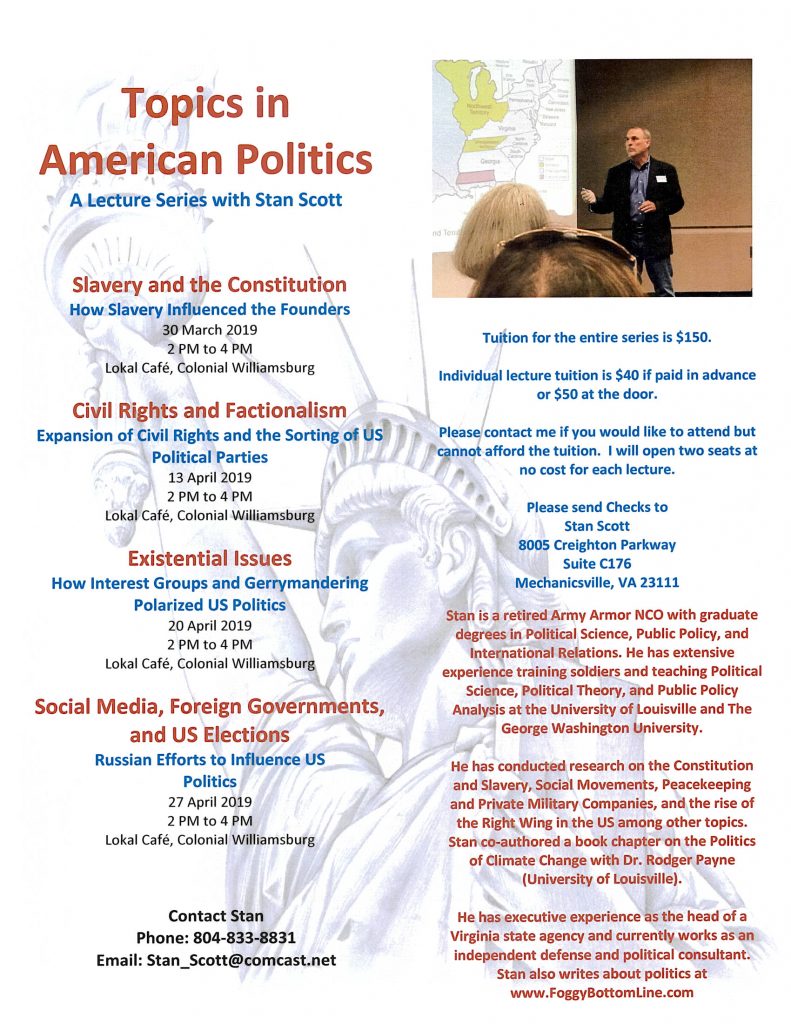UPDATE: Governor Northam held a press conference this afternoon and walked back his admission last night that he was in the picture:
“I believe now and then that I am not either of the people in this photo. This was not me in that picture. That was not Ralph Northam.”
https://www.cnn.com/2019/02/02/politics/northam-racist-yearbook-photo/index.html
Northam went on to say that he gave photos to the yearbook staff, did not participate in assembling his page, did not purchase a copy, and hadn’t seen it in thirty years. Publication blindsided him.
Maybe the yearbook staff placed the photo in question on Northam’s page by mistake and he genuinely did not know about this until yesterday. Which of course begs the question: why admit to being one of the people in the picture unless you remember wearing blackface or a KKK costume but cannot remember a specific? Someone out there might have photos of me that I’d prefer never became public, but I know one thing with 100% certainty: no picture of me in blackface or a KKK outfit exists. I’ve never worn either. Ever.
Northam’s admission that he wore blackface for a dancing contest, which he won with a Michael Jackson impersonation, doesn’t help. Dressing up like Jackson was common enough at the time – Jackson was on the Jackson’s Victory Tour and at the height of his fame. But he could have performed without the shoe polish makeup, and his claim that he “only used a little because it’s hard to get off” means he was familiar with the blackface concept (and likely knows photos of this exist that he wanted to get out in front of).
Perhaps we shouldn’t hold Governor Northam responsible for the photo appearing on his page – this kind of mistake happens. And I very much hope that Governor Northam was not in the photo. But I’m not sure it matters any more, even if this turns out to be a right wing hit job using a doctored photo or yearbook. That he couldn’t vehemently deny this based on his own memory says quite a lot. Northam’s denial this afternoon muddies the waters. But resignation remains the right course.
Original Post:
Learning that Governor Ralph Northam apparently attended a party in either blackface or a KKK costume during his time in medical school flabbergasted and disappointed me.
Like everyone, Northam is at least in part a product of the time and place of his upbringing, and his Eastern Shore youth and Virginia Military Institute college career apparently included problematic attitudes on race. Whatever his thinking on racial equality today, the Governor clearly had no problem joking about terrorizing or making fun of people of color in 1984. I would hope that Northam’s time in the US Army and as a pediatrician lead to some personal introspection and change.
But if he has truly adjusted his attitudes about human beings not like him he could have owned his past and used it as a way to help Virginia confront its own problematic history of slavery and resistance to desegregation. He could have turned it into a teaching point about ways to move America to racial equality. Instead, Ralph Northam either hoped no one would discover this disgusting photograph or forgot it altogether – which is problematic in itself.
It matters because racial discrimination is America’s original sin. Colonization of North America by Western Europeans depended on the labor of chattel slaves, most of them Africans. America’s founding generations constructed our version of Capitalism on slavery and included clauses in our founding governing document specifically designed to protect slavery in some states. The Electoral College, equal state representation in the Senate, and the Second Amendment all have roots in the need to protect slavery in order to secure ratification of the Constitution by slave states.
We still pay for this sin – or at least people of color still pay. Even after the end of de jure slavery, de facto slavery in the form of Jim Crow laws, redlining and housing discrimination, voter suppression, and depression of education opportunities through segregated schools has kept families of color from building wealth and participating fully in American society. Efforts by white elites to socialize poor whites to fear poor blacks after the Civil War shows its effects through American attitudes about social safety nets and immigration still today. I don’t mean to suggest that the United States has not been a force for liberty and justice in the world. But America becomes more exceptional as such a force when we live by example for others, and we cannot do this without confronting this very real and very problematic history.
None of us has a perfect past, free of troubling actions, decisions, or attitudes. We all change as we grow, and I seriously doubt that Ralph Northam still holds views on race that would allow him to attend a party dressed in blackface or a KKK costume. He almost certainly has changed his attitudes about racial equality. As he became a prominent pediatrician and then politician, he had a unique opportunity to help Virginians have a discussion about its racial history and how people like him could overcome their past and help us move forward together. This may not have won him the Governorship, but it would have helped make Virginia a better place to live. Sadly, he forgot his past or chose to bury it instead.
This morning, Governor Northam will hold a press conference and will likely resign. He should.


